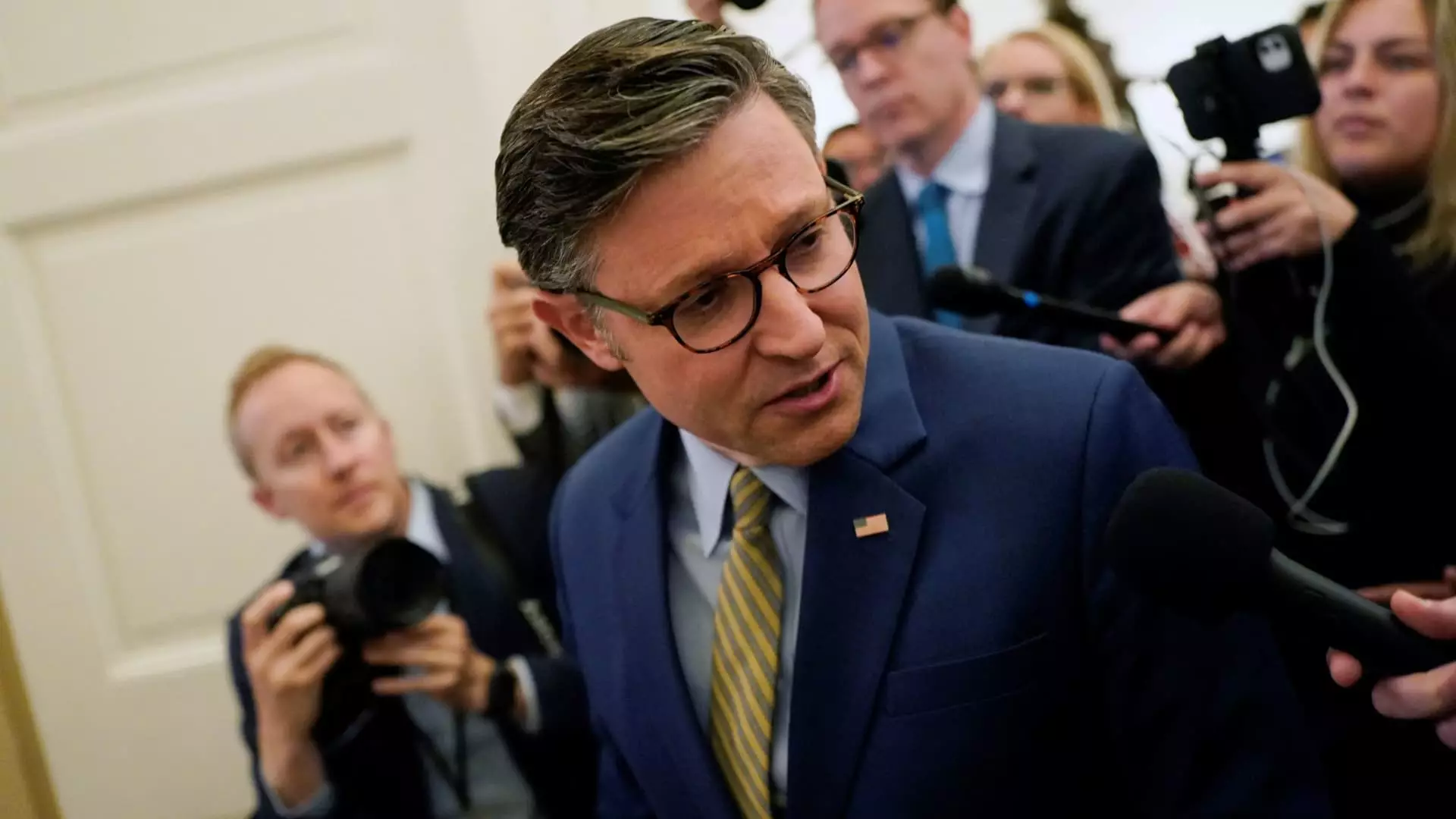House Speaker Mike Johnson recently celebrated what he dubbed the “big, beautiful bill,” labeling it as the “largest cut in spending in at least 30 years”—framing this monumental legislation as an economic boon that could lift American families out of financial strife. However, such exuberance feels more like a public relations stunt than an honest assessment of the bill’s ramifications. While claiming benefits for entrepreneurs and job creators, Johnson conveniently overlooks critical analyses revealing the possible $3.8 trillion deficit the Congressional Budget Office predicts over the coming decade. This bill, dressed in the attire of prosperity, appears more like a fiscal mirage, potentially exacerbating inequality.
A Dangerous Denial of Reality
Johnson’s dismissal of the CBO’s report reflects a troubling tendency among certain factions in the Republican Party to cling to optimistic forecasts while disregarding stark realities. By labeling serious financial projections “dramatically overstated,” he underlines an unsettling trend where political rhetoric trumps factual assessments. This risks creating a collective delusion regarding the implications of such spending cuts, which could drastically undermine services that American families rely on—education, healthcare, infrastructure maintenance. In a climate where many families are grappling with inflation, the last thing we need is to inflate federal deficits under the guise of fostering growth.
The Senate: A Last Line of Defense?
As the narrative unfolds, the Senate now becomes a crucial battleground where this fiscal gamble is poised for further dissection. Even traditional fiscal conservatives, like Sen. Ron Johnson of Wisconsin, are expressing unease, which signals that the bill’s cavalcade faces genuine scrutiny ahead. In an ideal scenario, the Senate could introduce critical modifications that prioritize fiscal responsibility. However, the pressure from Trump and party leadership hangs ominously over this debate, suggesting that expediency may overshadow thoughtful analysis.
Yet, Johnson urges Senate Republicans to tread lightly—a curious position for someone endorsing such aggressive cuts. Such a delicate balancing act suggests an internal conflict within the party, reflecting a torn constituency. Do they prioritize fiscal responsibility or a risky experiment in economic stimulation? Historically, similar “just trust us” messages have led to economic turbulence rather than stability.
The Reality Beyond Political Rhetoric
We must confront the reality that while the potential for economic growth exists, it cannot materialize in a vacuum devoid of resources. Tax cuts financed by increased deficits do not magically transform into sustainable growth; rather, they might lead us on a path laden with further division and disillusionment. With Americans already burdened by rising costs in everyday life, this legislation must not be seen merely as a buoy for business; instead, it is a perilous gamble that threatens the fabric of economic balance.
In an age where the electorate craves transparency and accountability, the continuous embrace of fiscally irresponsible policies, cloaked in hopeful rhetoric, could spell dire consequences for many. It’s high time politicians prioritize honesty and responsibility over explosive bills designed to captivate a naive electorate.

